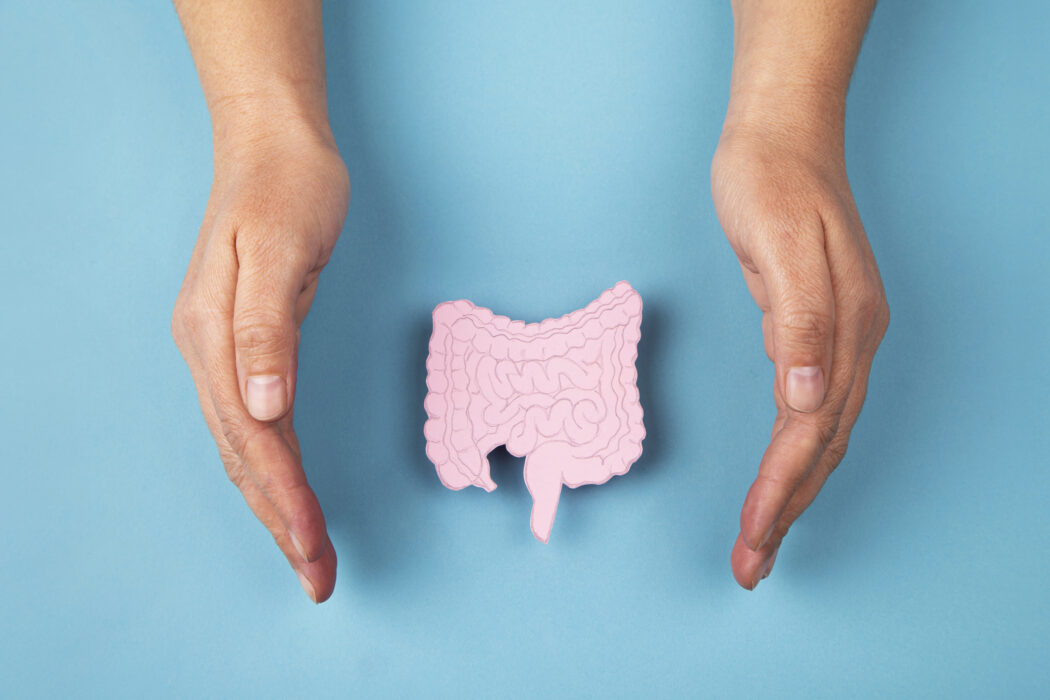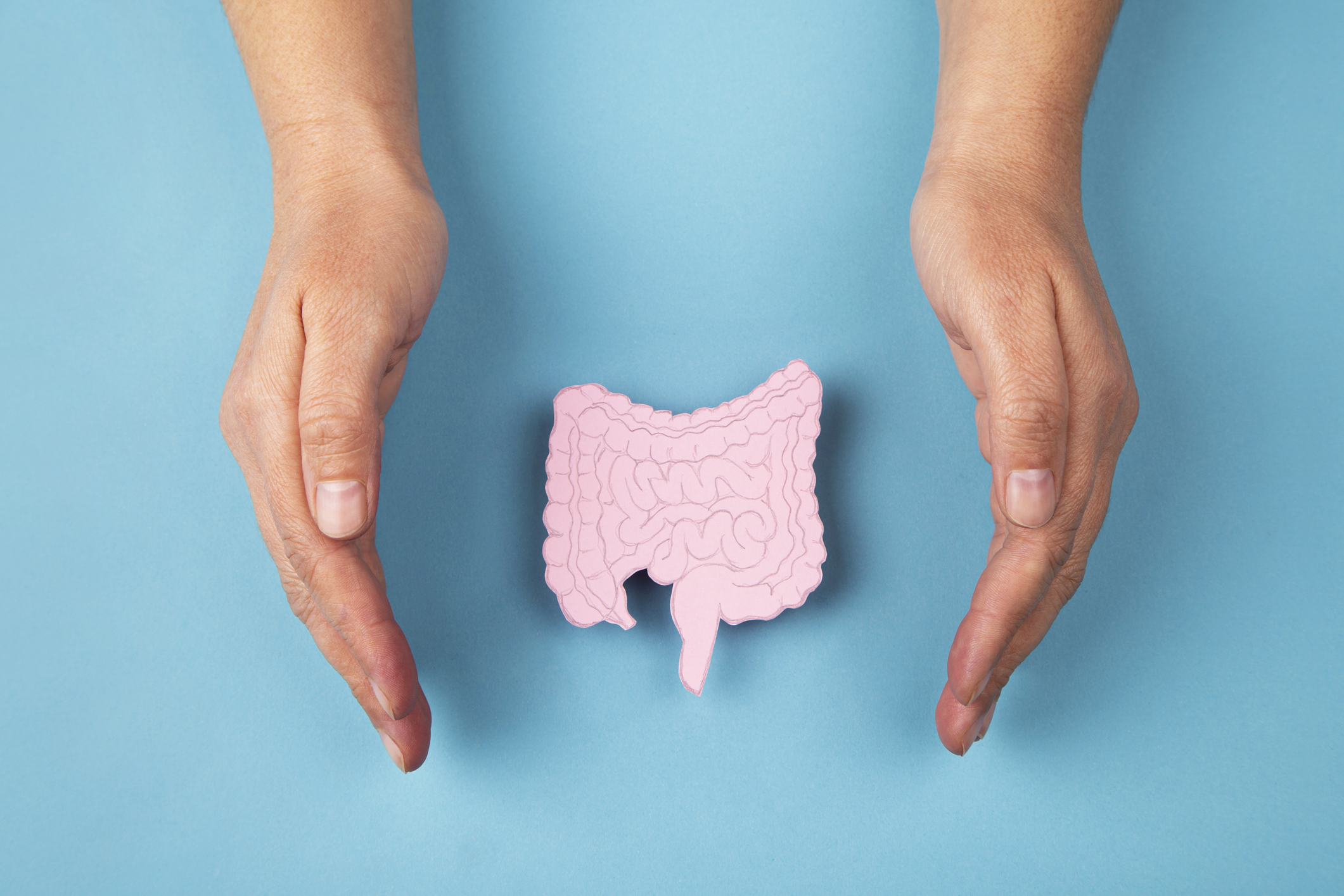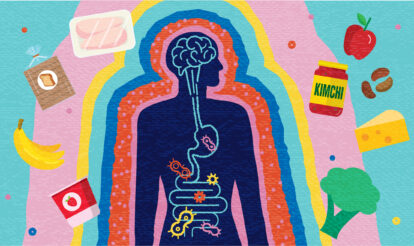
How stress and anxiety may affect gut health
How stress and anxiety may affect gut health

Stress and anxiety affect around one in four people worldwide.[1] While most of us recognise the telltale signs – fatigue, poor sleep, tight shoulders – few understand how it can also impact the gut microbiome and overall digestive function.
Stress is a major contributor to many gastrointestinal health issues due to its impact on the gut-brain axis – a bidirectional pathway that includes the central nervous system (CNS), autonomic nervous system (ANS), enteric nervous system (ENS), and hypothalamic-pituitary-adrenal (HPA) axis.[2]
Research has shown that chronic stress and anxiety create measurable changes to the balance of bacteria in the intestines, the integrity of the gut barrier, and normal digestive processes.
How the gut-brain axis works
The gut and brain are in constant communication via the gut-brain axis, a bi-directional system that includes the vagus nerve and the enteric nervous system (ENS). The vagus nerve carries messages between the brain and gut, while the ENS – also known as the ‘second brain’ – regulates digestion independently of the brain.[3]
When the brain senses a threat or stressful situation, it triggers the ‘fight or flight’ response, which releases hormones that help the body to run away from the threat. Although this was once essential for survival, chronic stress in modern life tends to keep this system activated.
Stress hormones can then interfere with the normal functioning of the enteric nervous system, potentially disrupting digestion and promoting inflammation.
The potential impact of chronic stress on the gut microbiome
Stress and microbial imbalance
Long-term exposure to stress hormones can impact the balance of gut bacteria, potentially allowing harmful microbes to grow while suppressing beneficial species. Catecholamines such as norepinephrine and epinephrine may contribute to increased growth of gram-negative pathogens and dysbiosis.[4]
A study involving university students reported that as academic stress increased throughout the semester, the students’ gut microbiome became more imbalanced, leading to digestive symptoms and increased susceptibility to illness. The researchers suggested that even short-term psychological stress can have measurable effects on gut health.[5]
Stress and intestinal permeability
Chronic stress may also contribute to increased intestinal permeability, commonly referred to as ‘leaky gut syndrome’.
The release of CRH during periods of stress triggers the release of inflammatory mediators which, over time, can damage the gut lining, weakening the tight junctions of the gut barrier.[6]
Studies show that patients with IBD and IBS – conditions involving increased intestinal permeability – tend to have higher levels of stress.[7]
Stress and digestion
During acute stress, the body redirects its resources to the muscles and heart, in preparation to run away from the ‘threat’. The release of catecholamines can impair gut motility (the movement of food through the digestive tract) and reduce the production of digestive enzymes and stomach acids required for the breakdown of food. As a result, digestion slows down, potentially leading to symptoms such as bloating, gas, constipation, and/or diarrhoea.[8]
Breaking the stress-gut cycle
While stress is largely unavoidable, it is possible to manage the body’s stress response through nutritional support and mind-body techniques.
- Probiotics as psychobiotics
Specific probiotic strains known as ‘psychobiotics’ may help to manage the stress response by influencing neurotransmitter production and reducing inflammation.
Strains of Lactobacillus or Bifidobacterium have been found to lower cortisol levels in people experiencing acute or chronic stress.
One study found that treatment with Lactobacillus rhamnosus helped to reduce anxiety as well as increasing levels of anti-inflammatory cytokines.[9]
Bifidobacterium longum has been shown to help modulate nervous system function and reduce stress-related behaviours, improving both the stress response and cognitive function.[10] - Omega-3 fatty acids
Omega-3 fatty acids may help to lower HPA axis hyperactivity by decreasing proinflammatory cytokines, which influence the stress response. Studies suggest that this can help dampen the response to minor stressors, potentially lowering the risk of stress-related disorders.[11]
A 2019 study found that EPA and DHA from fish oil provided fuel for beneficial species such as Bifidobacteria and Lactobacilli, increasing their proliferation in the gut. Fish oil supplementation also helped to reduce the growth of harmful species such as Enterobacteria while improving growth of Bifidobacteria.[12] - Stress management techniques
Cyclic meditation is a moving meditation that combines physical postures (asanas) with relaxation techniques. It involves slow and rhythmic breathing patterns that help to activate the vagus nerve and shift the body into ‘rest and digest’ mode.[13]
Several studies have indicated that regular meditation practice may help to improve vagal tone, which is associated with greater ability to recover from stress.[14]
The link between stress and gut health is highly complex, and everyone is affected in different ways. However, simple changes to nutrition and lifestyle can help break the cycle and restore balance to both the gut and mind.
This information is provided for educational purposes only and is not a substitute for professional medical advice. Always seek the guidance of your physician or qualified healthcare provider with any questions you may have regarding your health or a medical condition.
References
[1] 2025 Mind Health Report. (n.d.). AXA.com. https://www.axa.com/en/about-us/mind-health-report
[2] Cryan, J. F., O’Riordan, K. J., Cowan, C. S. M., Sandhu, K. V., Bastiaanssen, T. F. S., Boehme, M., Codagnone, M. G., Cussotto, S., Fulling, C., Golubeva, A. V., Guzzetta, K. E., Jaggar, M., Long-Smith, C. M., Lyte, J. M., Martin, J. A., Molinero-Perez, A., Moloney, G., Morelli, E., Morillas, E., O’Connor, R., … Dinan, T. G. (2019). The Microbiota-Gut-Brain Axis. Physiological reviews, 99(4), 1877–2013. https://doi.org/10.1152/physrev.00018.2018
[3] Cryan, J. F., O’Riordan, K. J., Cowan, C. S. M., Sandhu, K. V., Bastiaanssen, T. F. S., Boehme, M., Codagnone, M. G., Cussotto, S., Fulling, C., Golubeva, A. V., Guzzetta, K. E., Jaggar, M., Long-Smith, C. M., Lyte, J. M., Martin, J. A., Molinero-Perez, A., Moloney, G., Morelli, E., Morillas, E., O’Connor, R., … Dinan, T. G. (2019). The Microbiota-Gut-Brain Axis. Physiological reviews, 99(4), 1877–2013. https://doi.org/10.1152/physrev.00018.2018
[4] Alcock, J., Lin, D., Setty, P., Brown, L. K., Dichosa, A. E. K., Burnett, B. J., Han, C. S., & Lin, H. C. (2025). Catecholamine exposure and the gut microbiota in obstructive sleep apnea. PeerJ, 13, e19203. https://doi.org/10.7717/peerj.19203
[5] Knowles, S. R., Nelson, E. A., & Palombo, E. A. (2008). Investigating the role of perceived stress on bacterial flora activity and salivary cortisol secretion: a possible mechanism underlying susceptibility to illness. Biological psychology, 77(2), 132–137. https://doi.org/10.1016/j.biopsycho.2007.09.010
[6] Vanuytsel T, van Wanrooy S, Vanheel H, et alPsychological stress and corticotropin-releasing hormone increase intestinal permeability in humans by a mast cell-dependent mechanism. Gut 2014;63:1293-1299.
[7] Qin, H. Y., Cheng, C. W., Tang, X. D., & Bian, Z. X. (2014). Impact of psychological stress on irritable bowel syndrome. World journal of gastroenterology, 20(39), 14126–14131. https://doi.org/10.3748/wjg.v20.i39.14126
[8] Leigh, S. J., Uhlig, F., Wilmes, L., Sanchez-Diaz, P., Gheorghe, C. E., Goodson, M. S., Kelley-Loughnane, N., Hyland, N. P., Cryan, J. F., & Clarke, G. (2023). The impact of acute and chronic stress on gastrointestinal physiology and function: a microbiota-gut-brain axis perspective. The Journal of physiology, 601(20), 4491–4538. https://doi.org/10.1113/JP281951
[9] Bharwani, A., Mian, M. F., Surette, M. G., Bienenstock, J., & Forsythe, P. (2017). Oral treatment with Lactobacillus rhamnosus attenuates behavioural deficits and immune changes in chronic social stress. BMC medicine, 15(1), 7. https://doi.org/10.1186/s12916-016-0771-7
[10] Allen, A. P., Hutch, W., Borre, Y. E., Kennedy, P. J., Temko, A., Boylan, G., Murphy, E., Cryan, J. F., Dinan, T. G., & Clarke, G. (2016). Bifidobacterium longum 1714 as a translational psychobiotic: modulation of stress, electrophysiology and neurocognition in healthy volunteers. Translational psychiatry, 6(11), e939. https://doi.org/10.1038/tp.2016.191
[11] Madison, A. A., Belury, M. A., Andridge, R., Renna, M. E., Rosie Shrout, M., Malarkey, W. B., Lin, J., Epel, E. S., & Kiecolt-Glaser, J. K. (2021). Omega-3 supplementation and stress reactivity of cellular aging biomarkers: an ancillary substudy of a randomized, controlled trial in midlife adults. Molecular psychiatry, 26(7), 3034–3042. https://doi.org/10.1038/s41380-021-01077-2
[12] Cao, W., , Wang, C., , Chin, Y., , Chen, X., , Gao, Y., , Yuan, S., , Xue, C., , Wang, Y., , & Tang, Q., (2019). DHA-phospholipids (DHA-PL) and EPA-phospholipids (EPA-PL) prevent intestinal dysfunction induced by chronic stress. Food & function, 10(1), 277–288. https://doi.org/10.1039/c8fo01404c
[13] Patra, S., & Telles, S. (2010). Heart rate variability during sleep following the practice of cyclic meditation and supine rest. Applied psychophysiology and biofeedback, 35(2), 135–140. https://doi.org/10.1007/s10484-009-9114-1
[14] Sarang, P. S., & Telles, S. (2006). Oxygen consumption and respiration during and after two yoga relaxation techniques. Applied psychophysiology and biofeedback, 31(2), 143–153. https://doi.org/10.1007/s10484-006-9012-8




